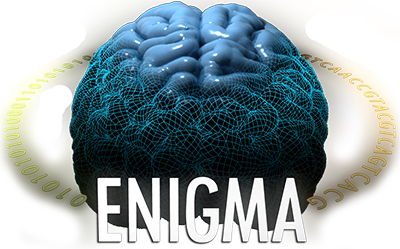Welcome to the ENIGMA Adult moderate-severe TBI (msTBI) working group. The Adult msTBI group was initiated in Spring of 2018. The goal for this group is to build a robust infrastructure based within ENIGMA to permit international collaboration and large-scale data analyses in msTBI. This group focuses on individuals sustaining moderate to severe TBI across the lifespan. We will investigate both acute and chronic TBI, the effects of interventions, and the long-term effects of TBI on aging. This will be achieved through analyses of datasets across participating sites, including structural and diffusion MRI, functional brain imaging (fMRI, PET, and ASL), MR spectroscopy, clinical, behavioral (performance-based and survey data) and genetic data.
The ENIGMA working group will provide previously unavailable opportunities for collaborations built around the principles of transparency and open science. Through our approach, we will provide resources and solutions for researchers to ensure low threshold for participation in a global effort towards increased knowledge of the consequences of msTBI. We are welcoming TBI researchers from around the world to join as members. If you have interest in contributing to this effort, please contact Professor Alexander Olsen (alexander.olsen@ntnu.no) or Professor Frank Hillary (fhillary@psu.edu).
Working Group PIs
Group Members
Cambridge University, UK: Virginia Newcombe, David Menon
University of Oslo, Norway: Torgeir Hellstrøm, Lars Westlye
University of Oslo, Norway: Marianne Løvstad
Imperial College London, UK: Lucia Li, David Sharp
Australian Catholic University, Australia: Karen Caeyenberghs
Lab Website
Icahn School of Medicine at Mount Sinai, USA: Kristen Dams-O'Connor
Lab Website
Monash University, Australia: Gershon Spitz, Jennie Ponsford
Kessler Foundation, USA: Katya Dobryakova, Helen Genova
Sheba Medical Center, Israel: Abigail Livny
Shirley Ryan Ability Lab/Northwestern University Medical School, USA: Jordan Grafman
Lab Website
Current positions available:
Hillary (Pennsylvania, United States)
We are seeking a highly motivated Postdoctoral Scholar in the area of human functional brain imaging and network modeling for a 1-2 year position funded by the Pennsylvania Department for Health and the National Institutes for Health. The successful candidate will have a primary appointment with Dr. Frank Hillary in the Department of Psychology with collaborative opportunities to work with Dr. Peter Molenaar in the Department of Human Development and Family Studies and Dr. Reka Albert in Physics Department. The primary responsibility of this position is to facilitate brain network analysis in structural and functional MRI data in individuals with brain injury. There is also keen interest for this position to support the development of novel methods for understanding plasticity from a systems neuroscience perspective including addressing non-stationarity in time series analyses and machine learning for prediction. Efforts include prospective data collection as well as analysis of existing data sets associated with the ENIGMA TBI initiative and collaborations with investigators at the University of Michigan using brain stimulation techniques as an intervention for memory loss in early dementia. A doctorate (M.D. or Ph.D.) degree that is conferred (or anticipated in the calendar year) is required. Excellent verbal and written communication skills and a background in computational modeling (broadly defined) is required and programming experience is preferred. Review of applications will begin in September. Interested candidates must submit an online application AND a curriculum vita, cover letter, and the names and contact information for three references to (fhillary@psu.edu).




